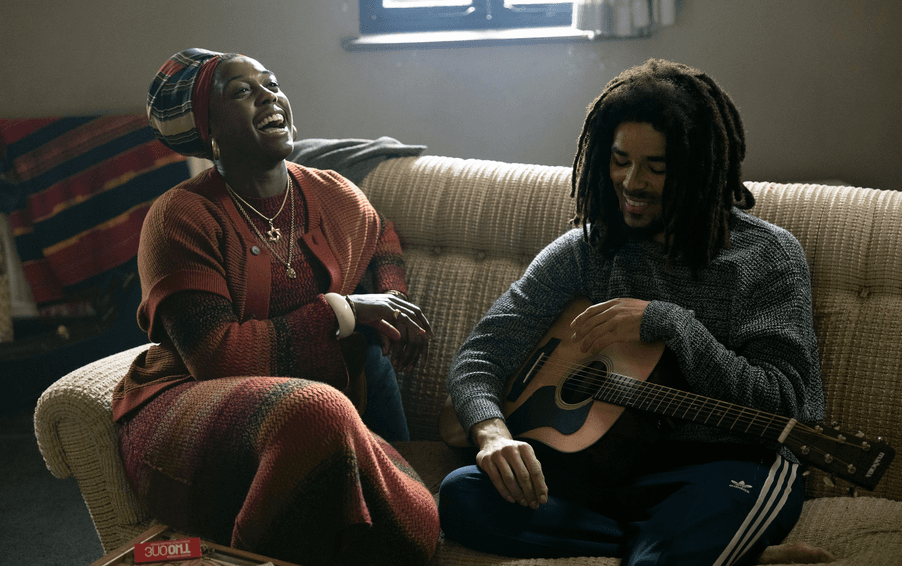When heavyweight boxing legend Muhammad Ali met Will Smith, who was to portray him in the biopic “Ali,” Ali said, “You’re almost pretty enough to play me.”
‘Bob Marley: One Love’: Marley’s Music and Cultural Legacy
Hagiographical but accurate, “Bob Marley: One Love” accentuates Marley’s message of love and opens the door to his music for those unfamiliar with it.

Rita Marley (Lashana Lynch) and Bob Marley (Kingsley Ben-Adir) share memories of their childhood, in "Bob Marley: One Love." Paramount Pictures
Mark Jackson is the senior film critic for The Epoch Times and a Rotten Tomatoes-approved critic. Mark earned a bachelor's degree in philosophy from Williams College, followed by classical theater conservatory training, and has 20 years' experience as a New York professional actor. He narrated The Epoch Times audiobook "How the Specter of Communism Is Ruling Our World," available on iTunes, Audible, and YouTube. Mark is featured in the book "How to Be a Film Critic in Five Easy Lessons" by Christopher K. Brooks. In addition to films, he enjoys Harley-Davidsons, rock-climbing, qigong, martial arts, and human rights activism.
Author’s Selected Articles





